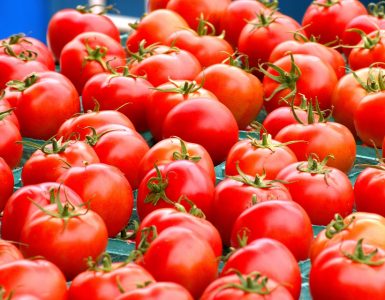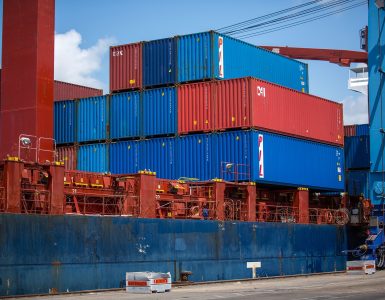Farmers are the sacrificial cow as they bear the brunt of international trade wars.
President Trump’s promise to lessen the blow with a $12 billion emergency farm aid package is a drop in the milk bucket when it comes to potential long term consequences, local and national experts said.
Arizona farmers, economists and others are weighing in. It’s not looking good.
“You have a terrible policy that sends farmers to the poorhouse, and then you put them on welfare, and we borrow the money from other countries,” Senator Bob Corker, a Republican from Tennessee, was quoted the day it was announced July 24.
Critics are calling it a bandaid for a self-inflicted wound and a catalyst to push the national debt to $1 trillion next year.
Sadly, the business of trade was doing “pretty well” until now, said Dennis Hoffman, director of the L. William Seidman Research Institute at the W. P. Carey School of Business at ASU.
“The problem in negotiating with other countries is it’s in the realm of politics and not just business,” Hoffman said. “Tariffs are not good. We try to make our trading as unfettered as possible. Unfortunately, Trump sees this as a sign of weakness.”
In Arizona, Phil Bashaw, chief executive officer of the Arizona Farm Bureau, said it puts farmers in a dangerous limbo.
“We appreciate the aid, but at the end of the day, I think all of my farmers will tell you they prefer to compete in an open, fair and competitive market,” he said. “We currently export to 70 foreign countries. Foreign trade is a huge part of our agricultural economy and fluctuates between $1 and $1.5 billion annually. This is a huge concern for us.”
At least $266.2 million of that is threatened under new retaliatory trade tariffs from four of Arizona’s trading partners, Canada, Mexico, the European Union and China, according to a new report from the U.S. Chamber of Commerce.
Arizona is not feeling a major pain point yet, said Julie Murphree, the Farm Bureau’s director of outreach. If Congress acts quickly, her hope is America can recover and new pathways for trade will open up.
“Nobody does agriculture as well as America does,” Murphree said. “Our product is so robust, I hope they can come back even stronger.”
The emergency aid package relies on programs already in place. Thus, no approval from Congress is required. It has three components:
- Direct payments starting in September to farmers hurt by tariffs
- A food purchase and distribution program to buy ‘unexpected’ surpluses of commodities to distribute to free food assistance programs
- Develop new export markets for farm products.
The full financial impact of the first tariffs won’t be realized until September. Trump is preparing another $200 billion in tariffs on Chinese goods.
The jury is still out on how damaging the first round will be, said Troy Schmitz, associate professor in the Morrison School of Agribusiness in the W. P. Carey School of Business at ASU. “If they impose the second round of tariffs, obviously it gets a whole lot worse.” he said.
Job loss is a concern. Over 12 million jobs in the country are supported by U.S. exports that pay 13 to 16 percent higher than average wage jobs, he said. Agricultural-related businesses employ about 25 percent of Americans when you include restaurants and other service industries.
The potential long term damage could be profound, said Russell Tronstad, a professor of agricultural-resource economics at the University of Arizona.
“Countries like China are not going to stop feeding soybeans to their animals,” Tronstad said. “They’ll get them from Brazil and elsewhere. As those regions change their supply base, trying to regain the market becomes an uphill battle as we have to go back and compete with those regions where they’ve already worked on sourcing new supplies.
“It’s not like we can just turn the light switch back on, especially if this goes on, they’ll be reluctant to shift.”
To see a list of state-by-state impacts from tariffs, go to: https://www.uschamber.com/tariffs.
















Add comment